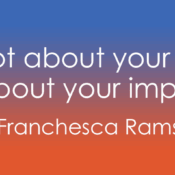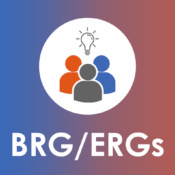
Igniting Organizational Change: Moving Beyond “Inspirational Porn”
As a change management consultant, I value the power of intentional action to create meaningful and lasting progress. This core belief shapes how I analyze societal narratives - and the concept of disability as inspiration is one that demands critical examination.
I find myself deeply conflicted by the prevalent tendency to frame disability – any disability – as inherently inspirational to non-disabled individuals. While the resilience, adaptability, and strength displayed by individuals navigating a world that is not always designed for them should be acknowledged, reducing their experiences to mere "inspiration porn" is profoundly problematic. This positioning objectifies disabled individuals and enables feel-good emotions for others, rather than acknowledging their full humanity and the full scope of physical, attitudinal, and systemic barriers people with disabilities are forced to navigate.
With one caveat: representation is critical for children and young adults with disabilities, including those who are Deaf and hard of hearing. They need exposure to adult role models who share similar lived experiences.
My father co-founded the ARMED program (Adult Role Models in Education of the Deaf), which brings Deaf and hard of hearing adults into Chicago-area schools to serve as role models. I distinctly remember being inspired to pursue law after a Deaf patent attorney visited my second-grade class. Granted, things changed, but I was inspired to shoot for the moon.
Driven by this passion for representation, I've dedicated countless hours to guiding Deaf and hard of hearing children. I share strategies for navigating life with communication differences, potential hurdles, and societal misconceptions. My goal is to instill confidence in these young individuals, empowering them to achieve their goals despite the challenges they may face.
Admittedly - it still weighs heavily on me that in 2025, members of my community are still not always receiving access to the bare minimum of reasonable accommodations as required by law.
Yet, I remain optimistic that the glass is half full, not half empty.
As we seek to build a future where everyone belongs, we must shift the narrative away from positioning people with disabilities as objects of inspiration for non-disabled individuals simply because they have overcome physical, attitudinal, and systemic barriers.
Rather, I urge a shift in focus towards inspiring and driving organizational and systemic change. The true inspiration lies not in passively admiring individual struggles, but in our collective drive to dismantle the very barriers that create those struggles in the first place.
With respect to driving improved experiences for Deaf and hard of hearing individuals, fostering this kind of change requires a multi-faceted approach that targets organizations and systems at all levels. I’ve compiled a list of actionable steps you can take to foster positive systemic change, grounded in representation:
- Drive Inclusive Policy and Practice: Accessibility is a fundamental right and a systemic priority. To make accessibility a reality, we must advocate for and implement policies that dismantle physical, attitudinal, and systemic barriers within all facets of society, including educational institutions, healthcare systems, businesses, and community organizations.
- Build Capacity for Equity and Inclusion: For systemic change to occur, we need to shift how we prepare and support the next generation of professionals, including business leaders, healthcare and mental health workers, educators, and attorneys. In order to promote understanding and challenge negative stereotypes, there must be exposure to and instruction on the principles of accessibility, societal misconceptions and biases.
- Elevate Deaf and Hard of Hearing Perspectives in Decision Making: As I’ve mentioned in numerous previous #ConversationsWithCorey blog posts, true organizational change requires centering the lived experiences of individuals with disabilities. This means actively involving Deaf and hard of hearing individuals in the development of policies, programs, and services that impact this community. Lived experiences are invaluable in creating truly effective and equitable systems.
- Cultivate Self-Advocacy: Opportunities for individuals with disabilities to represent their accessibility needs and preferences to ensure effective access must be provided. Far too often, I see K-12 students with Individualized Education Programs (IEPs) left out of pertinent conversations about their own education. Generally, parents rely on educational professionals without firsthand experience to dictate the right fit for their child. By hiring Deaf educational professionals and involving students in their own IEP meetings, educational programs can ensure an informed perspective where students thrive. Ultimately, we have a duty to equip younger generations with the skills, know-how, and the confidence to advocate for their needs and rights.
- Hold Accountability for Systemic Failures: Every one of us has a responsibility for systemic failures which have contributed to disparate experiences. Change will only take place once we acknowledge systemic harm and our own contributions to perpetuating the status quo.
Needless to say, we must celebrate and embrace self-advocacy to build accessible environments where everyone can thrive. However, if we really think about it, if environments were truly accessible, would self-advocacy even be needed? I recognize this is a utopia - but why not strive for a world where people feel they truly belong.
Ultimately, inspiration should be the catalyst for tangible action within our respective organizations and systems.
The real inspiration lies not in their individual triumphs over adversity, but in our collective commitment to dismantling systemic barriers and creating a world that truly values and celebrates their unique identities and potential.
Together, let's move beyond the limiting narrative of individual inspiration - and instead become architects of systemic change, working collaboratively to build a society where individuals with disabilities are not just accommodated, but fully included and empowered to thrive.



